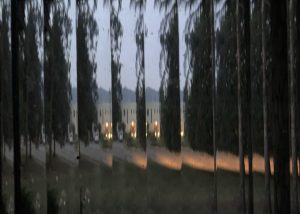
Photo Credit: Isabel Wong
In early April, while video calling with my friends, laughing over the small, silly things that keep quarantine light, feigning quick jabs at inside jokes, worrying and luxuriating in next year’s possibilities, my friend mentioned one such possibility she was working on, her thesis proposal. I started. Were we supposed to be thinking about theses already? How was I supposed to know we were supposed to be thinking about theses? COVID-19 had already cancelled another friend’s research arrangements in Zambia I learned. As I registered everyone else leaping off the starting blocks, I remained, unsure how, or whether, to jump.
After some frantic clicking online, I determined my major department doesn’t require proposals. Students register for Senior Seminar and, suddenly, they’re writing a thesis. Feeling very much like a junior with a waterlogged alarm and ill-prepared to undertake the, arguably, greatest intellectual endeavor of my undergraduate career, I asked a professor in my department what, exactly, happens in the course. She looked slightly startled. Well, you know, you write a thesis.
The lack of detail discouraged me. Registration loomed and I, no more enlightened on whether I would need to conduct interviews, let alone how to code them, wasn’t sure what to do. I recognize the privilege of such ruminations, of choice. Proposals are denied, departmental resources and mentors overburdened or unavailable. Given the energy both student and professor must exert, and wishing to neither waste nor disrespect others’ time and facilities, I want to make certain I pursue research scrupulously and under conscious commitment.
After my meeting, I foresaw parting with thesis research. The paper length terrified me, research questions eluded me, skulking about the internet for credible sources left me, and my computer, hot and irritable. And yet I couldn’t quite step away from the prospect of thesis research, its magnetic something, an excitement impossible to put down. But I was afraid its glimmering pull was simply prestige’s gold foil, the allure of a great culmination, a single package presentable to passing naysayers.
Confessing as much to two recently graduated Barnumbia friends, we scheduled a call. They answered all my questions about research outside NYC, a possibility; workload, around one-and-a-half times that of a typical seminar; complete accountability, scary, yes, but also empowering.
But was it worth it? I wanted to know. I feel like I don’t even really like research.
When I envision the act of research, details quickly daunt. The hours, the pages, the outlines jotted, reversed, rewritten. Iterations’ mental wearing. Deadlines’ constant gnaw. The many infamous labors I glimpsed my friends undergo crowded my mind when I first began considering thesis research. Reorganizing my thinking, my friends exposed the printed page as research’s product, not its entirety. I would hands down do it again. It was the most intellectually rigorous project I’ve ever completed, not because of the results, but because of the process.
Where to begin this journey was one of my greatest concerns. While peers submitted proposals for review, I floundered about a topic. My interests feel broad and wide, not so much directionless as every-directioned. You don’t have to know what you’re going to study, my friends assured me. Many who saunter in armed with a research question eventually reroute. Explore, discuss, fall down rabbit holes. Then, pass the time reading down there.
Also, I think you would really enjoy thesis research.
After talking with my friends, I realized I was approaching the research process from its arrival rather than from its departure and letting logistics scare me off. In high school, I wrote papers with predetermined endings, learned the technique as “persuasion.” UWriting changed that, and I recognized my arguments’ contrived natures. To equate research to a paper, a finding to an ending, is to accept an argument before considering the evidence. It is to construct from top to bottom, from thesis statement to analysis, from fire to spark.
But that’s not what research is. Research is a process. It starts with reacting, wondering why you feel such strong disagreement, why Plato would make such an argument, how others define justice. We understand Core texts do not hold all the answers. Their interpretations and meditations are but responses, responses to questions that haunt each generation. It is questions, perhaps ones not much different from those we asked on that bright first day sitting in Lit Hum, which continue to drive us, which keep the practice of research pulsing, which urge the relevancy of the Core.
As I embark upon research this year; as I soak in all those walks and talks and music-filled reflections lying on my bed, feeling what sticks and kicks and won’t let go; as I wander down one path only to wonder into another, I let questions lead the way.
Title inspired by Linda Gregg’s “Let Birds.”
